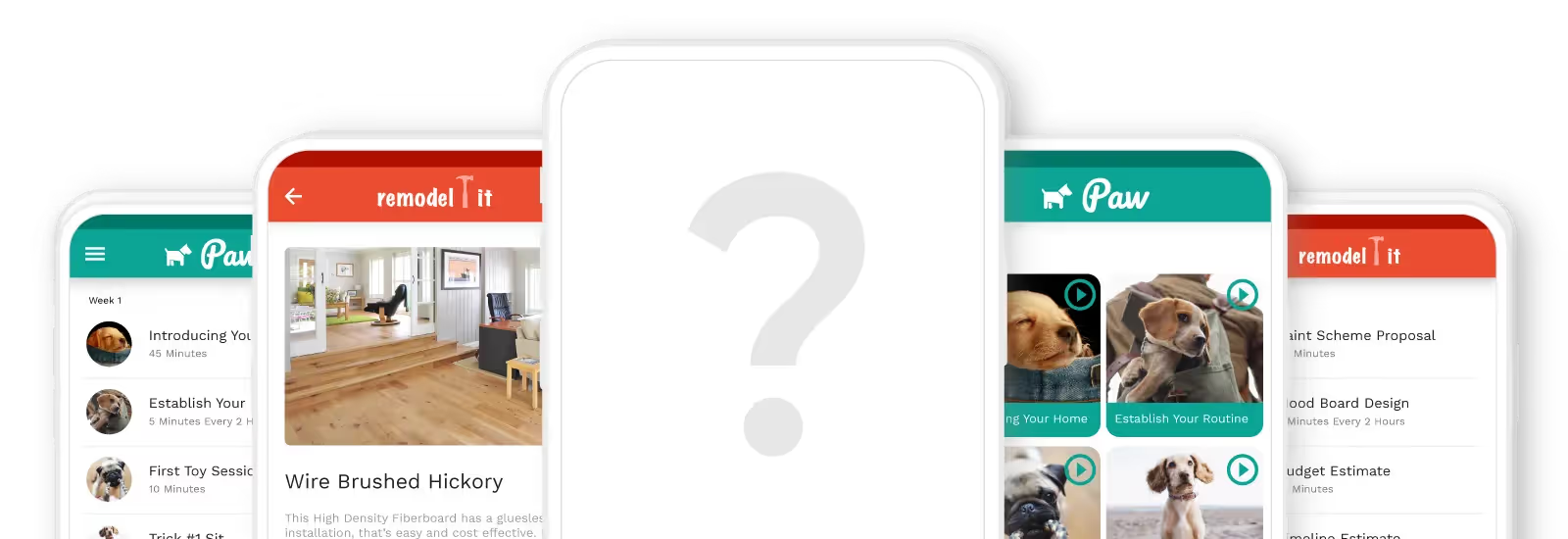.avif)
Curious about Xano, Supabase, and Adalo? Xano and Supabase are powerful backend builders, while Adalo is a full-package no-code app builder.
However, Xano has the highest starting price among the three, and there’s more to consider when deciding which is right for you.
Read on to learn the following:
- Key differences between Xano vs. Supabase vs. Adalo
- How I compared the 3 platforms
- Review features, pricing, and who each platform is good for
- Which platform is right for you?
- Getting started with Adalo
Let’s take a look at the key difference between each tool.
Xano vs. Supabase vs. Adalo: A Quick Summary of Differences
How I Compared Xano vs. Supabase vs. Adalo
Since 2014, I’ve tested and tinkered with over 250 no-code and low-code tools. I even founded my own website, NoCode.tech, dedicated to reviewing app builders of all varieties. So, I took my decade-plus of experience and compared Xano, Supabase, and Adalo using the following:
- Core functionality: All 3 platforms can create a backend, which works behind the scenes, answering user requests, pulling up data, or connecting to external, third-party apps and transferring information.
Each platform also serves as a database builder. A database is simply your app’s storage center — all your user information, external data, and other information will be tucked away in it. Xano, Supabase, and Adalo each offer the ability to customize your database and command your backend how and when to work with specific rows of data.
- Target audience: Each platform caters to a different audience. For instance, while Xano and Supabase are both ideal for techies, Supabase appeals to folks who have experience working with PostgreSQL databases. These databases are super versatile and open-sourced, allowing for heaps of customization and flexibility.
Adalo, on the other hand, is suitable for techies and non-techies alike. It leverages a simple drag-and-drop interface that makes it easy to create your frontend, backend, and database. So, if you want a simple tool to spark life into an app idea fast, go with Adalo.
- Flexibility and customization: Xano, Supabase, and Adalo all feature high levels of flexibility and customization, but in their own ways. Xano, for instance, lets you customize your logic, Supabase provides a freakish level of control over your PostgreSQL database, and Adalo allows for nearly pixel-perfect design freedom when building your frontend.
Additionally, Xano, Supabase, and Adalo can be used to create various apps for various industries and businesses. These apps include those for internal operations like project management, accounting, and restaurant apps.
- Free versions: Before you sign up, it's incredibly important to know how a tool or software meshes with your personality and actually learn the platform. Luckily, Adalo, Supabase, and Xano all have free versions, letting you learn the interfaces on your own time and at your own pace.
Xano

Who It’s Good For
If you bring experience and knowledge about creating backends and databases, you’ll probably be delighted by Xano. It’s one of the most robust no-code backend builders on the market, and it’s great for crafting highly functional backends for medium-sized businesses and up.
As we mentioned, to learn Xano properly, you’ll need some technical knowledge, such as experience with a database scheme and configuring backend logic.
Features
- With great power comes great responsibility in learning the platform. The Xano Team understands this and has created one of the best ecosystems among backend builders, with videos, tutorials, and documentation walking you through all of Xano’s aspects.
- If you need to create a highly complex backend, do it with Xano — the platform is Turing Complete, meaning you can craft complex logic to compute any task. Couple this with the ability to create your own APIs, and you can transfer data from third-party applications and crunch the data to meet your precise needs.
Pricing
At $99/month (billed monthly), you’ll get an unlimited number of databases and data records, along with the ability to test your data sources so you can confirm everything clicks before launching your backend.
Xano’s $225/month (billed monthly) plan lets you scheme up to 20 different versions of your database and allows for unlimited background tasks for automating workflows, updating real-time data, and much more.
Supabase

Who It’s Good For
If you’re experienced with PostgreSQL and want an open-source backend builder, shortlist Supabase. The platform is particularly well-suited for developers and development teams looking for a robust and flexible backend builder that lets you scale to the moon.
Supabase is also an excellent alternative for folks wanting to move on from Firebase, as its open-source nature allows for greater transparency. PostgreSQL is a more robust solution for building complex relational databases.
Features
- In addition to providing clear transparency, the fact that Supabase is open-sourced allows you to share your backend’s code with other developers, who can suggest helpful functionalities that you might not have considered.
- Supabase comes packaged with lock-down security features to monitor access control through functions like single-sign-on, session timeouts, database permissions, and more. With Supabase, you won’t need to worry about your backend being attacked by malicious actors.
- If you want to scale quickly, Supabase might be your best choice. It supports horizontal scaling to meet usage demands and even distributes your app across multiple servers if need be. Supabase also vertically scales, giving you more CPU storage and RAM as your user base grows.
Pricing
Supabase pricing starts at $25/month (billed monthly), allowing for up to 100,000 users so you can scale at lightning speed. The next version, at $599/month (billed monthly), has loads of features for big businesses, like daily backups lasting 14 days, SOC Type II compliance, and the option for HIPAA compliance.
Adalo

Who It’s Good For
Featuring a super simple no-code building interface, Adalo is a native mobile app builder that anyone can use, regardless of tech experience. Unlike Xano and Supabase, Adalo lets you create your frontend, backend, and database, meaning you won’t need another platform.
Because it’s such an accessible platform, I’ve recommended Adalo to entrepreneurs, freelancers, and small and medium companies more than any other platform — it lets you spark life into any app idea for your business.
Features
- While Adalo is super simple, it doesn’t lack power. You’ll have the design freedom to customize your backend logic, change the color and craft the layout of your frontend to meet your exact brand needs and tastes, and organize your database as you see fit.
- Your users will have no problem finding your Adalo-made app. You can publish it to the web so users can find it through a simple browser-based web search. You can also publish it on the Apple App Store and Google Play Store so users can download it directly to their devices.
- Did you develop a backend on Xano and want to transform it into a full-fledged app with a frontend? Connect it to Adalo, as Adalo is integrated with Xano.
And if you sign up for Adalo’s Business or Team Version, you can get Xano’s Launch Plan, a $99/month value, for free courtesy of Adalo.
Which Platform Should You Choose?
Now that you know more about each platform, you can make an educated decision about Xano vs. Supabase vs. Adalo. I recommend you consider the following:
- Your technical expertise: If you’re a beginner at building apps, you will probably struggle with Supabase and Xano (if you’re like the no-code users comparing Xano vs. Supabase on Reddit) — most of these users have technical knowledge and coding fluencies.
When it comes to Supabase, you’ll need to have experience building PostgreSQL databases or, at the very least, some experience with the SQL (structure query language) database coding language.
For Xano, you’ll need to understand backend logic well and how APIs work. If Xano and Supabase sound too technical, we recommend you go with Adalo. Adalo doesn’t require technical experience or coding knowledge: If you can create a Facebook account, you’re skilled enough for Adalo.
- The need to create a frontend: While both Xano and Supabase pack a serious punch in backend and database development, creating a frontend with these two tools is like teaching a rainbow trout to walk — it’s impossible.
So, if you need to create a frontend, backend, and database on the same platform, go with Adalo. But here’s a sweet deal Adalo is currently offering: Sign up for Adalo’s Team or Business Plan, and Adalo will cover your monthly costs to Xano’s Launch Plan — a $99/month value.
Additionally, Adalo integrates with Supabase but without a deal similar to the one offered to Xano users.
- Experience with PostgreSQL: For folks with PostgreSQL experience, going with Supabase is almost a no-brainer, as the platform provides heaps of customization and open-source features.
These allow you to share your commands and implement the commands of other coders directly to your Supabase project, which can result in a compelling product.


Next Steps: Create Your App with Adalo
Need a powerful frontend builder for your Xano or Supabase backend? Or perhaps you aren’t experienced with tech, but you want to create an app for your business. The answer is simple: Get Adalo.
Adalo features one of the best frontend builders in the no-code app development space. You’ll start with a premade template, but they customize its colors, structure, and layout to meet your precise needs.
After putting on the finishing touches, publish your app on the web, in the Apple App Store, and the Google Play Store so all your clients know where to get it.










.png)
.png)

